Anne Clark Baker (GISDE ‘14) received a B.A. in Architecture from Washington University in St. Louis and Master in Landscape Architecture from the Harvard Graduate School of Design. Her experience designing public landscape architecture projects in the U.S. and abroad, coupled with AmeriCorps volunteer work in refugee and immigrant communities led to her interest in the relationship between localized human experiences and the broad view of global change dynamics afforded by remote sensing techniques. She came to the GISDE program to gain a deeper understanding of the different methods and scales at which geospatial information is gathered and analyzed, in order to better inform the design, planning, and ongoing adaptability of human settlements and landscapes in the future. She recently received a Switzer Environmental Fellowship in support of her studies at Clark.
Ryan Taylor Williams (GISDE ‘14) grew up in rural North Texas and received a B.A. in Urban Studies from the University of Texas (UT) at Austin. His motivation to come to Clark stems from his volunteer experiences working with disadvantaged communities in both urban and rural contexts of Mexico, South Africa, and the United States, and a deep interest in conservation and systemic sustainability. His current academic and personal interests are the use of GIS and remote sensing for spatial analysis of the urban environment, anthropocentric land change, and sustainable design and planning. He has worked as data coordinator and Teaching Fellow at Citizen Schools, committee co-chair at UT’s Campus Environmental Center, Teaching Assistant at Clark, and as a freelance planner at DesignTank. After his time at Clark, Ryan plans to use spatial data analysis and cartography to improve the capacity of organizations to adapt to a rapidly changing world.
This past year, Baker and Williams worked together at Goddard Space Flight Center (GSFC) as research interns within NASA’s DEVELOP program. Under the supervision of scientists at GSFC and in collaboration with the African Conservation Centre, their team’s research focused on using satellite imagery and raster analysis techniques to explore the phenological response of vegetation to drought events and grazing pressure from livestock and wildlife within the Amboseli Basin of Kenya. Their results were presented at DEVELOP’s close-out event at NASA headquarters in Washington D.C. and was selected to be presented at the American Geophysical Union’s 2013 Fall Meeting in San Francisco.
Anne and Ryan plan to graduate this spring, with hopes to use their knowledge gained at Clark to better serve their community!

